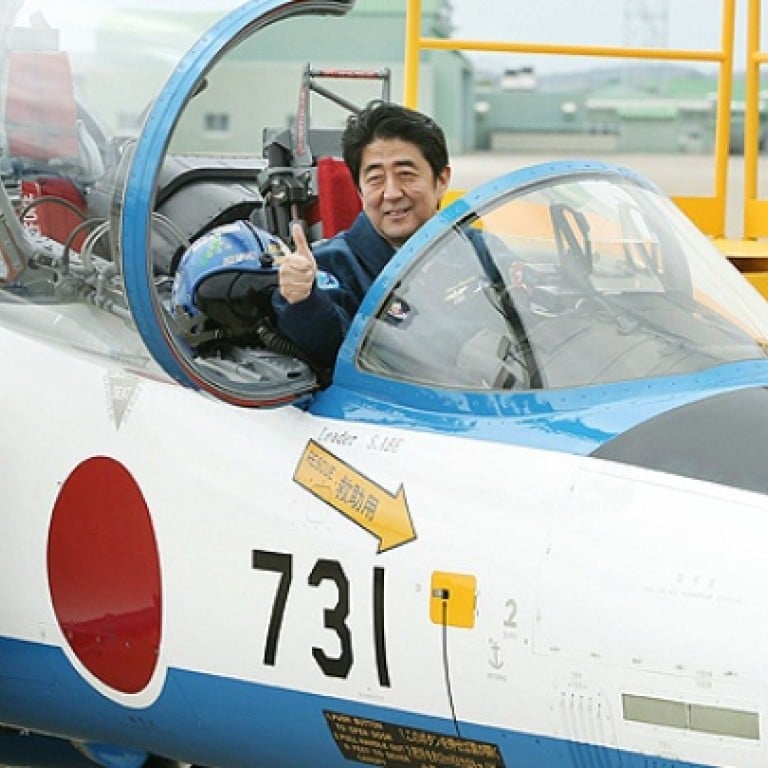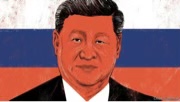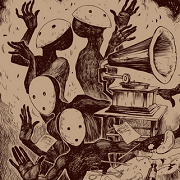(Thread IKs:
fart simpson)
|
slave to my cravings posted:so they are outsourcing jobs to Philippine? All of those companies are huge users of Filipino workers for call center and NOC / tech support, and the tech worker market in the Philippines is very strong now for developing and maintaining major business systems and even doing the kind of dev work that has long been the domain of highly paid Western workers. So yes. And it's probably going to be a lot of computer toucher jobs. e: To expand on how rapidly the Philippines tech sector is emerging, it's actually starting to be difficult to hire for some systems like Oracle PeopleSoft because younger tech workers don't want to have "dinosaur" tech skills. Some of the previous outsourcing to the Philippines was because companies couldn't find people to maintain their dinosaur systems locally, so now I imagine the next search for dinosaur developers begins (Cambodia? Vietnam? Who knows) Telluric Whistler has issued a correction as of 04:54 on Mar 12, 2024 |
|
|
|

|
| # ? May 13, 2024 21:00 |
|
Jose posted:All the Asian men got replaced but not the women lol benedict wong plays the cop but the character now has almost no interaction at all with the scientists so hes not really the same character hes just a guy who investigates stuff
|
|
|
|
here's puff piece about xinjiang women. thing that stood out to me is the deputy NPC member had 100% of her recommendations implemented and her recent 2023 recommendation about funding support for nursing homes had already been implemented in 2024 https://www.youtube.com/watch?v=Z8E6Y6ZYGxI
|
|
|
|
stephenthinkpad posted:So what do you think caused the dissolution of USSR? It was definitely not the western sanctions on import goods. As we can see sanctions in the current decade, the US has never imposed effective sanctions on any country, nor effective ban on any substance inside the US. The bigger the target country, the less effective the sanction it is. Sanction is basically a "piss at you from my high horse" P.R. move. idk if "the US has never imposed effective sanctions" is really correct. sure, it hasn't resulted in regime change in cuba, DPRK or iran, but it's definitely stifled their development. but to return to the original question, why did the liberalization fail in the USSR? if your answer is that china only liberalized the economy, whereas the USSR liberalized both the economy AND the political region, then that sounds like a pretty interesting hypothesis.
|
|
|
|
There's a book called How China Avoided the Shock Doctrine that answers that exact question
|
|
|
|
stephenthinkpad posted:So what do you think caused the dissolution of USSR? It was definitely not the western sanctions on import goods. As we can see sanctions in the current decade, the US has never imposed effective sanctions on any country, nor effective ban on any substance inside the US. The bigger the target country, the less effective the sanction it is. Sanction is basically a "piss at you from my high horse" P.R. move. was combing to find this post dead gay comedy forums posted:I never found a historical summary of why that avenue wasn't followed by the Union. From what I recall, from the top of my head, these were the factors that came up the most
|
|
|
|
Kinda funny if the whole thing is that the Russian leadership didn't realise that they would never be treated as equals by the West and only permitted to exist as a humiliated enemy to plunder and degrade eternally, while China knew it from the start and deliberately positioned themselves in a servile role as the West's workhouse, one where they're expected to build up their industry and infrastructure to feed Western greed and the treat economy, where they're actually allowed to develop industry and infrastructure and all the talk of Communism is supposed to be nod-nod wink-wink lip service.
|
|
|
|
lol youtube pushed these videos to me and im in heaven https://www.youtube.com/watch?v=3lAd2JTE2bc https://www.youtube.com/watch?v=r_RpWMzWz1M&t=5s
|
|
|
|
CCP badger don't care
|
|
|
|
https://twitter.com/interaksyon/status/1767442349687517209quote:On Monday, Reddit user @Realistic_Half8372 flagged some of the video reports of the TikTok account which has the description: “China-based Journalists | Covering China & Global Issues” our media is now down to reposting reddit threads
|
|
|
|
Ghost Leviathan posted:Kinda funny if the whole thing is that the Russian leadership didn't realise that they would never be treated as equals by the West and only permitted to exist as a humiliated enemy to plunder and degrade eternally, while China knew it from the start and deliberately positioned themselves in a servile role as the West's workhouse, one where they're expected to build up their industry and infrastructure to feed Western greed and the treat economy, where they're actually allowed to develop industry and infrastructure and all the talk of Communism is supposed to be nod-nod wink-wink lip service. That was not at the cards at all until Deng and the CPC-right realized the breach, tbqh Mao's reasoning for disciplinary action against Deng was based on deep aversion and mistrust against those "let's use capitalism" ideas, as he saw those people not realizing how much of a Trojan horse that was + what happened with Khrushchev was a catastrophe with the international communist cause. Regardless of the CPC being very much correct on that sense, Mao tried his best with the USSR for that reason as well -- Beijing and Moscow were the two fundamental pillars of the Comintern. If late Stalin was blundering awfully there, Kroosh however opened the doors into the absolute heights of unbelievable stupidity in Soviet foreign affairs. Without the Comintern, there was no true combined coordination of socialist international policy. Mao and Zhou took advantage of US interests but never conceded on economic reform - Zhou had differences with Mao, but was decidedly much to the left of Deng. Deng himself and the CPC-right eventually understood why of those concerns when poo poo went seriously sideways with Tiananmen. The fact that they managed to act as a vanguard party and organize the pull through when it was 1989 -- when the nadir of the international cause started -- is a testament to their competency. e: forgot the quote
|
|
|
Telluric Whistler posted:All of those companies are huge users of Filipino workers for call center and NOC / tech support, and the tech worker market in the Philippines is very strong now for developing and maintaining major business systems and even doing the kind of dev work that has long been the domain of highly paid Western workers. I learn it but I wouldn’t be able to get a job doing it because I don’t already have a job doing it.
|
|
|
|
|
skooma512 posted:Meanwhile Shogun is just killing it. I didn't read the book nor watch the original series, but 3 episodes in and yeh its epic entertainment. But, I'm getting real White Saviour vibes.
|
|
|
|
Its really not a white savior narrative. They are using the yakubling mostly as a pawn and making frosted flake's coreligionists look bad.
|
|
|
|
Have a read about the guy it's based on it's interesting
|
|
|
|
Regarding Cybernetic Marxism. I have a hard time believe it would have made fundamental impact in reform. I don't know enough of its history to say anything else. Ghost Leviathan posted:Kinda funny if the whole thing is that the Russian leadership didn't realise that they would never be treated as equals by the West and only permitted to exist as a humiliated enemy to plunder and degrade eternally, while China knew it from the start and deliberately positioned themselves in a servile role as the West's workhouse, one where they're expected to build up their industry and infrastructure to feed Western greed and the treat economy, where they're actually allowed to develop industry and infrastructure and all the talk of Communism is supposed to be nod-nod wink-wink lip service. I think both China and the capitalists just agreed to copy or duplicate the export oriented success in S. Korea, Taiwan, Hong Kong and Singapore. If it had already happened the ethnic Chinese city states outside of China, Deng and CPC knew they could duplicate it. And they did it very carefully with special exonomic zone, a Deng innovation more countries should copy. I don't see joining globalization a "master-servant" relationship. You have to actually open your domestic price control, finance sector, etc to be controlled by foreign power . China did agree to open up corn to the international market in one of the negotiations with the US in the 90s and her domestic corn industry got severely attacked/impacted as a result. Also none of the asian tigers except SK built up the heavy industry, its really a separate policy discussion outside of WTO/globalization. stephenthinkpad has issued a correction as of 11:39 on Mar 12, 2024 |
|
|
|
stephenthinkpad posted:I am not say China won't counter sanction, but China is doing it on her own time table, in battlefield her chooses. Like the US blanket sanctioned Huawei probably expect China would sanction Apple and Qualcomm in return, but China's current strategy is to make money outside of the 1 billion population western zone instead of engaging in trade war. There are some sanctions of MIC companies but nothing against the silicon companies. I think the goal is keep the contest tension and temperature low so the third worlds can continue to trade with China without worrying. One thing about the third worlds in Latin America, ASEAN and MENA is that the regular people don't care about the Sino-US contest but the ruling elites are very susceptibility to western influence. In fact, we probably will see the Chinese strategy again from how the tiktok dispute playout, I predict it will take the longest and soft route on the court room. And when the court take the US government's side eventually, tictok will go web app for the US market instead of selling it off. no, i'm not saying anything about what china will or will not do. i'm saying that it's already the beginnings of a "cold war" just based on what the US is doing alone. like i think you could say that the US and cuba have been in a cold war for decades and cuba has literally no say in whether or not it continues. it doesn't take 2 sides to engage
|
|
|
|
somebody’s gotta save japan might as well be me
|
|
|
|
deadjb posted:somebody’s gotta save japan might as well be me If your class is tinkerer you're a bit late.
|
|
|
|
stephenthinkpad posted:I think both China and the capitalists just agreed to copy or duplicate the export oriented success in S. Korea, Taiwan, Hong Kong and Singapore. If it had already happened the ethnic Chinese city states outside of China, Deng and CPC knew they could duplicate it. And they did it very carefully with special exonomic zone, a Deng innovation more countries should copy. i gotta be honest, having a tough time following your point. i feel like you're contradicting yourself? if letting foreign powers control your domestic prices and finance sectors isn't a "master-servant" relationship, then what is? what does heavy industry have to do with anything?
|
|
|
|
crepeface posted:i gotta be honest, having a tough time following your point. i feel like you're contradicting yourself? To make it clear China (or any country) uses tariffs and regulations to protect domestic industry. And I remember it wrong, it was not corn but soybean. 1994 China and US signed an agreement to open up the Chinese soybean market without tarriff peotection. That was how US soybean industry and the Dept of Commerce used the boom bust pricing cycle to kill the Chinese domestic soybean industry. In respond China built a huge grain strategic reserve dept called Sinograin to help control the grain price. After the soybean episode, China didn't open up many other domestic commodity markets in order to protect and control the domestic market stability. In other words, China still hold the tarriff and regulations levers very closely and doesn't let private industry or foreign market have too much influence. One good example is the IT indusrtry. If China let MS and Google come in without heavy regulation, the domestic search and gaming and cloud industries wouldn't have time to grow, any remote good IT companies would have been brought up, which is exactly what happened to every other country outside of China and Russia. So, if China follow the free market, neoliberal economic model, yeah it would be a master-servant relationship. But China has never brought that scam. quote:what does heavy industry have to do with anything? Nothing, I was just making a side comment that SK (and China) have a different model than other tigers.
|
|
|
|
Ghost Leviathan posted:Kinda funny if the whole thing is that the Russian leadership didn't realise that they would never be treated as equals by the West and only permitted to exist as a humiliated enemy to plunder and degrade eternally, while China knew it from the start and deliberately positioned themselves in a servile role as the West's workhouse, one where they're expected to build up their industry and infrastructure to feed Western greed and the treat economy, where they're actually allowed to develop industry and infrastructure and all the talk of Communism is supposed to be nod-nod wink-wink lip service. Also they didn't have to hide this because no matter how loudly and repeatedly they pointed out that this was the plan, nothing they could ever say or do would ever make the West believe it was the case. Liberals are so deluded that in addition to believing that There Is No Alternative, they genuinely believed that everyone everywhere with any economic awareness believed in TINA and anyone who claimed not to, even a doctrinaire Marxist-Leninist, was just pretending, and deep in their hearts knew that the Washington Consensus was true.
|
|
|
|
gradenko_2000 posted:https://twitter.com/ABSCBNNews/status/1767173635431612866 my condolences, friend
|
|
|
|
stephenthinkpad posted:To make it clear ok, we know all that tho. how's this related to the different approaches to liberalization that the USSR/china took? are you saying that the USSR privatised too much? how and when, because perestroika was in the 1980's when they were already well into the downward slide. i see them in different circumstances because the USSR was dependant on the global market of minerals and petrochemicals which the US was able to manipulate. liberalization doesn't help in these material circumstances. also, you can say that china didn't buy the scam and they managed to build reserves but... their soybean industry is still destroyed, right? their commercial aeronautical industry got eaten and IT independence is a recent thing. there was a point where they HAD to rely on foreign IT services.
|
|
|
|
crepeface posted:ok, we know all that tho. This discussion started when mila kunis posted:Someone criticize or vibe check this position I've been leaning towards My reply was essentially agreed on the capital but not on the technology. The impact of tech transfer is overrated.....and then discussion went to degree of liberalization topic. I don't like the word "liberalization", I prefer the word "reform" which is not an ideological word. I think how fairly or properly you push for reforms is more important than how fast your can get to a better system. You have to ensure certain degree of fairness in order to get the stake holders buy in your next wave of reform. So yeah I think Gorbachev changed too fast and too much. You don't need to compare to PRC, you can compare to Vietnam and Cuba. How did their governments manage to stay intact? The state being able to provide minimum degree of confidence is very important. quote:i see them in different circumstances because the USSR was dependant on the global market of minerals and petrochemicals which the US was able to manipulate. liberalization doesn't help in these material circumstances. Before 91, Soviet relied and depended on the global oil export market, and the US was able to keep the oil price low for a 10 year stretch. The Soviet probably could smuggle in everything else they really need critically. Other things on the tech sanction list, eventually you can steal or figure it out if you are persistence. This is true for basically all the large countries.. quote:also, you can say that china didn't buy the scam and they managed to build reserves but... their soybean industry is still destroyed, right? their commercial aeronautical industry got eaten and IT independence is a recent thing. there was a point where they HAD to rely on foreign IT services. China never had commercial airline industry, they only finally field a competitor (C919) after 30-40 years of using marketshare to trade technology. We can go industry by industry and see if they support yours or mine argument, but a lot of Chinese recently emerging industries spent decades building imported designs under the 50/50 ownership model to sell inside China. And they only recently become competitive outside of China (gasoline cars for example). China can close down the soybean market in theory, but ultimately China doesn't have as enough farm land to raise both crops and animal to feed the 1.4B population. So the current farming strategy is mandated by law to keep minimum amount of farm land (1.8 bil arce) and import animal feed from outside. So when you are buying pig feed from out of the country, it doesn't matter where you are buying from, it could be US or Brazil just the cheapest one because outside is a free market world. However China do use her soybean buying power to barter better deal during trade war with Trump.
|
|
|
|
Ghost Leviathan posted:Kinda funny if the whole thing is that the Russian leadership didn't realise that they would never be treated as equals by the West and only permitted to exist as a humiliated enemy to plunder and degrade eternally, while China knew it from the start and deliberately positioned themselves in a servile role as the West's workhouse, one where they're expected to build up their industry and infrastructure to feed Western greed and the treat economy, where they're actually allowed to develop industry and infrastructure and all the talk of Communism is supposed to be nod-nod wink-wink lip service. Deng stay winning
|
|
|
|
stephenthinkpad posted:This discussion started when by stakeholders, you mean internal capital holders in a top-down state controlled economic system? or the people? or global capital? and gorby came into power in the 80's, well into the USSR's decline. quote:Before 91, Soviet relied and depended on the global oil export market, and the US was able to keep the oil price low for a 10 year stretch. The Soviet probably could smuggle in everything else they really need critically. Other things on the tech sanction list, eventually you can steal or figure it out if you are persistence. This is true for basically all the large countries. quote:China never had commercial airline industry, they only finally field a competitor (C919) after 30-40 years of using marketshare to trade technology. We can go industry by industry and see if they support yours or mine argument, but a lot of Chinese recently emerging industries spent decades building imported designs under the 50/50 ownership model to sell inside China. And they only recently become competitive outside of China (gasoline cars for example). china never had an airline industry... maybe because they opened up? https://redsails.org/emergency-measures/ posted:To take the aviation industry as an example, the gap between China and the Western aviation industry was 30 years. After the development of the Shanghai Y-10, the gap narrowed to 15 years. If we had not worked on domestic development the gap would only have further widened! Using this 15-year gap to denigrate the Y-10 as backwards is ridiculous. It took the Americans 7 years and 3 months from the successful detonation of the atomic bomb to get to the successful detonation of the hydrogen bomb, while it took China only 2 years and 8 months to do the same. The Boeing 707 first flew in 1954, the Boeing 727 first flew in 1963 — 9 years in between; the Boeing 737, which is still flying today, first flew in 1967, took only 13 years after the 707. If the development of the Shanghai Y-10 had continued, it’s entirely possible that China’s civil aviation industry would already have caught up with the United States. The same is true of our electronic computers, which started from zero but were only 4 or 5 years away from the world’s #1 in the ’70s, the United States. quote:China can close down the soybean market in theory, but ultimately China doesn't have as enough farm land to raise both crops and animal to feed the 1.4B population. So the current farming strategy is mandated by law to keep minimum amount of farm land (1.8 bil arce) and import animal feed from outside. So when you are buying pig feed from out of the country, it doesn't matter where you are buying from, it could be US or Brazil just the cheapest one because outside is a free market world. However China do use her soybean buying power to barter better deal during trade war with Trump. let's focus on what i think is your main point. lack of capital transfer to the USSR was the main reason for their downfall, but not technology. why? crepeface has issued a correction as of 17:34 on Mar 12, 2024 |
|
|
|
stephenthinkpad posted:The Soviet probably could smuggle in everything else they really need critically. Other things on the tech sanction list, eventually you can steal or figure it out if you are persistence. This is true for basically all the large countries.. Again, no, not really. To tie two things together, I gave the example of electronics used for the West Siberian oilfields, which was an injuring blow to the USSR. The JFK presidency had listed as a critical priority to deny to the maximum extent possible any and all developments that the Soviet Union could make it in relation to central planning technology:    If you are looking at things with a mindset of today, it's an error of context. Having technological means to advance central planning required computing resources orders of magnitude more expensive than today, but the results were undeniable to the West in relation to the industrial and productive power that the USSR commanded. This is a documented economic factor. Was it the only problem? Of course not. The entire gist was "if those guys are able to do this stuff already, with all technical difficulties involved, imagine if they start solving those?" quote:I don't like the word "liberalization", I prefer the word "reform" which is not an ideological word Not using terms because they are "ideological" is way more ideological than just saying the thing. And Gorbachev didn't do things wrong: he was doing exactly what his careerist, liberal and opportunist section aimed at and wanted to. The USSR was dissolved against its own popular volition because of Gorbachev's faction, it wasn't a matter of popular confidence in relation to the state.
|
|
|
|
Tankbuster posted:Its really not a white savior narrative. They are using the yakubling mostly as a pawn and making frosted flake's coreligionists look bad. yeah im not really sure what people think when they say something is a white savior narrative unless they just mean "a white person is in it and has kind of an important role" id actually argue blue eyed samurai is the most blatant white savior narrative weve seen in recent years and it accomplishes this by not hitting any of the obvious marks people look for when they think of the phrase the main white character is an obvious evil villain sure but the half white lead is quite literally described as having superpowers due to her mixed race identity and the broader arc of the show is about the very racist very sexist and apparently very incompetently managed polity of seventeenth century japan collapsing without her intervention
|
|
|
|
if you want to watch a bunch of old economists dismantle western claims of “peak china” and, in the process, say god I wish that was me to yourself over and over, geopolitical economy report has you covered https://m.youtube.com/watch?v=3K1Vku1SDd8
|
|
|
|
Lol it's bad to criticise a book because the author isn't white https://twitter.com/finality_org/status/1766985765404451225?t=MIB9Oiwv0IMebjwSNVo8Nw&s=19
|
|
|
|

|
|
|
|
Israel is a plague on the entire world https://thewire.in/communalism/israeli-diplomats-forged-deep-ties-with-hindu-right-wing-from-early-60s-documents-reveal Israeli diplomats have been cultivating ties with the Hindu Right in India since the early 1960s, with Jan Sangh and Bharatiya Janata Party members allegedly collaborating to organise rallies and protests across the country, as per unclassified documents from the Israeli foreign ministry. [...] The diplomatic telegrams show that while Israeli diplomats explicitly referred to the far-right members as “fascist” and noted that the ideology was based on a hatred of Muslims, the relations with the far right were carefully maintained. India had recognised Israel on September 17, 1950, but full-scale diplomatic ties, with the opening of embassies in capitals, only took place in 1992. During those 40-0dd years, Israel was represented in India with a consulate in Mumbai. [...] Less than a year later, Gordon wrote on April 26, 1966 about recommendations for strengthening ties with India, which included “secret communications with oppositional elements for the purpose of organizing demonstrations hostile to the government”.' [...] On March 14, 1967, the Israeli consul wrote in a telegram that the Jan Sangh had included a demand for full diplomatic relations with Israel in its manifesto. Two months later, the Israeli ambassador to Nepal, Moshe Arel reported to Tel Aviv on May 22, 1967 that he had met with a Jan Sangh lawmaker, M.L. Sondhi, in Kathmandu. As Sondhi was the MP from New Delhi, he said that “local government in the Delhi region had passed onto the hands of Jan Sangh”. Sondhi explained, as per the Israeli diplomatic telegram quoted in Haaretz, that “It is now possible to put the Indian government to various tests in the Israeli context, the result of which will be the undermining of the existing anti-Israel policy.” [...] A few months later in January 1968, Sondhi was in Phnom Penh, where he met with the Israeli ambassador to Cambodia, Raphael Ben Shalom, who wrote that the Indian lawmaker told him that he was ready to organise a “protest of hundreds of thousands” in support of full diplomatic ties with Israel. In addition, through the same middleman, the consulate “coordinated queries with lawmakers from Jan Sangh designed to criticize and embarrass the New Delhi government on the issue of its abnormal relations with Israel”. [...] Besides Jan Sangh, the Israeli consul in Mumbai, Reuven Dafni, also kept contact with the Shiv Sena party. A 1968 telegram by Dafni, who had been active underground in Hungary to save Jews during the Holocaust, described the Shiv Sena as “obviously demagogic fascist” and said that it held demonstrations in “the style of the Nazis in the ’30s in Germany and Austria: breaking windows of mainly foreign shops, removing foreign workers from various workplaces, etc”. [...] During the October 1973 Yom Kippur, a rally was held in Bombay in support of Israel with participation from the Shiv Sena and Jan Sangh “in coordination with the Israeli consulate”. The Israeli consul, Joshua Trigor, wrote back that Shiv Sena chief Bal Thackeray and a Jan Sangh MP gave speeches in support of Israel. [...] In the continuing saga of Israeli diplomats meeting with the Jan Sangh leadership over the decades to hear about their sympathy for Tel Aviv and disapproval of the Union government’s position, Israeli consul Trigor wrote that he “personally heard this from party president LK Advani at our meeting in Delhi in 1973”. [...] In July 1981, Israeli consul Yosef Hassin reported back that he had asked Ram Jethmalani, lawyer and then vice president of the BJP, to write an internal party paper on relations with Israel. “Hassin reported that Jethmalani asked if he could prepare a working paper and arguments for him for a “balanced and fair position toward Israel” to be presented at the party’s conference. Hassin noted that he willingly complied with the request. Jethmalani was also one of the organizers of the abovementioned rally in support of Israel during the Yom Kippur War, in coordination with the consulate,” the article stated. [...] In an overview of Israel’s relations with India, a report written by the Isreali foreign ministry’s Asia department in June 1982 observed that the “factors working in our favour” included “the existence of the Hindu-Muslim conflict, which was a deep and sharp rift, and the formation of the anti-Muslim right-wing Bharatiya Janata Party”.
|
|
|
|
Mandel Brotset posted:if you want to watch a bunch of old economists dismantle western claims of “peak china” and, in the process, say god I wish that was me to yourself over and over, geopolitical economy report has you covered Oh nice. One long-term project of mine is to bend my union's stance to be more pro-China. We're reasonably inclined toward internationalism, but there's a fair bit of the "China bad, or at least China is failing" that comes to the surface any time the topic comes up. I need to adapt more info like this so I can push back easier.
|
|
|
|
Currently everyone is puzzling over why the Yoon regime went so hard on getting the defense minister out of the country. The initial issue was the reaction to the investigation of the drowning of a marine private during the floods last summer. quote:Lee, then serving as Defense Minister, initially approved the Marine Corps’ internal investigations team’s referral of General Im Seong-geun 임성근, who ordered Chae’s unit to conduct the operation, to the police for criminal charges. Soon afterwards, however, Lee performed an about-face, canceling the referral to the police and charging Marine Corps investigator Park Jeong-hun 박정훈 with munity. [Editorial] Why is the Yoon administration overreaching to shield the former defense minister from a criminal investigation? quote:Former Minister of National Defense Lee Jong-sup, the key suspect in a case of alleged external pressure concerning an investigation into the suspicious death of a marine, has left South Korea. Gildiss has issued a correction as of 01:43 on Mar 13, 2024 |
|
|
|
https://twitter.com/rapplerdotcom/status/1767748252911149380
|
|
|
|
private space companies seem so stupid to me
|
|
|
|
mila kunis posted:Israel is a plague on the entire world this explains why random indian middle class people had huge hardons for israel. They were essentially cultivated by the israeli government to have pro-israel positions. Good on the INC for just giving them a huge middle finger and establishing relations only after consulting with the PLO under arafat.
|
|
|
|
'Not good': Beijing insists everything is fine. Here's what real people say about China's economic situation China is doomed. The real people will reveal how bad the economy is quote:Walking through Beijing's hutongs, you can easily see the image Xi Jinping's government wants to project to the world. quote:As hundreds of tourists make their way down the hutongs, a woman selling fried dumplings says things are "very average". Ok so some people say the economy is bad, average, or good. Xi is finished
|
|
|
|

|
| # ? May 13, 2024 21:00 |
|
Even the people who said they felt it wasn't going well at the moment said that they're in seasonal work and it's the low season. Gripping stuff.
|
|
|

































